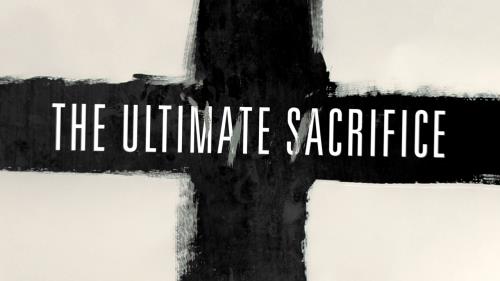-
Jesus The Rabbi Series
Contributed by Mike Wilkins on Nov 28, 2017 (message contributor)
Summary: Jesus Jewishness is key to understanding his life
Jesus Who? September 30, October 1 & 4 2007
Jesus the Rabbi
Last week we looked at Jesus the Teacher, and you might wonder why we need to do a week on Jesus the Rabbi, since Rabbi is a Jewish term that means teacher. The important distinction being that he was a Jewish teacher.
It may be that in our attempt to make Jesus accessible to everyone, and in particular to North Americans, we have painted Jesus as a 21st century Renaissance Man and have stripped him of his Jewish roots and culture.
It would be nice if that was the only reason that the church has ignored Jesus’ Jewishness, but for a faith that began exclusively with Jews, the church pulled away and even rejected it’s Jewish roots. Sadly, for a faith that started Jewish, we even became anti-Semitic, teaching our children that the Jews were to be hated because they killed Jesus. (Who else would have killed him? An American shot Martin Luther King Jr., an Indian killed Gandhi, of course the Jews had a hand in Jesus’ death, although it was likely a Gentile Roman soldier that did the actual deed) Even now, the church has this strange relationship with the Jews, having a strange fascination with Israel and also being at best recovering anti-Semites.
Philip Yancey grew up in a fundamentalist church in middle America; he writes this in his book “The Jesus I Never Knew:”
“As I got to know Jesus, the realization sank in that he probably did not spend his life among Jews in the first century merely to save Americans in the twentieth. Alone of all people in history, he had the privilege of choosing where and when to be born, and he chose a pious Jewish family living in a backwater protectorate of a pagan empire. I can no more understand Jesus apart from his Jewishness than I can understand Gandhi apart from his Indianness. I needed to go back, way back, and picture Jesus as a first-century Jew with a phylactery on his wrist and Palestinian dust on his sandals.”
As we try to paint a picture of Jesus in this course, we need to understand his culture, just as understanding your cultural heritage would help me in better knowing you, knowing Jesus’ culture will greatly shape our picture of him.
Both Matthew and Luke, in their accounts of Jesus’ ministry give a genealogy list at the beginning of the Gospel. It is important to them to fit Jesus’ story firmly in the story of the Jewish people. Jesus does not drop down to earth out of heaven like some alien being, he too is a Son of Abraham, Isaac, and Jacob. He is the descendant of the great King David. Jesus, like any Jewish boy was circumcised on the 8th day of his life, the proper sacrifices were made for him at the temple, and his mother went through the ritual cleansing prescribed for after childbirth. He would have grown up keeping the Law, celebrating all the festivals, and as Jackie Mason says, being "as Jewish as a matzo ball or kosher salami,"
Although we are told that Jesus was the name that was given to him by the angel, It was a common name at the time “Yeshua” as they said. It was a derivative of “Joshua” who was the great leader of Israel who brought the people into the Promised Land after Moses died. Moses was also a popular name at the time. The fact that Joshua and Moses were popular names speaks to the ache in the people’s hearts for a deliver to come. Just as Moses brought them out of slavery, and Joshua brought them into the land, they needed someone to come and drive out the Romans and restore Israel to its former glory and its former holy relationship with God. The name “Jesus” was a hope and a prayer on many mother and father’s lips.
In Jesus day, the Romans were in control of what we call Israel, and what they called Palestine. “In control” might not be the best term, because this little backwater province was one of the hardest in the empire to control. They rejected the Greek gods and culture that the Romans tried to impose. They attempted to drive out the Roman legions over and over again. They were never successful. Wm. Barclay wrote, “It is the simple historical fact that in the thirty years from 67 to 37 B.C. before the emergence of Herod the Great, no fewer than one hundred and fifty thousand men perished in Palestine in revolutionary uprisings. There was no more explosive and inflammable country in the world than Palestine.”
Even under the iron rule of Herod the Great, there were constantly small bands of revolutionaries led by a messiah figure trying to build a movement to banish the Romans, kill the collaborators and restore Israel to it’s glory days. Many of these movements came out of Galilee; Jesus’ home turf for most of his life and ministry .If Palestine was to the Roman Empire what Afghanistan has been to the Russian and American empires, then Galilee is Kandahar – the place where dissent and rebellion flourishes. Even during Jesus time there was a group of Galileans who went to the temple to make sacrifices before they began an armed insurrection against The Romans. The Roman Governor, Pilate, got wind of it, sent his soldiers to the temple where they killed all the rebels, and it was said that they mixed the Galileans’ blood with the blood of their sacrifices on the altar.

 Sermon Central
Sermon Central



